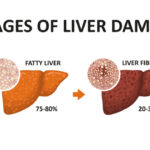The Systolic Blood Pressure Intervention Trial (SPRINT) findings suggest that lower blood pressure targets can benefit community-dwelling older adults with hypertension by decreasing the risk of cardiovascular diseases and premature mortality. However, intensive efforts to lower blood pressure may also elevate the likelihood of acute kidney injury and episodes of critically low blood pressure. A recent study published in the Journal of the American Geriatrics Society has delved into the benefits and drawbacks of aggressive blood pressure reduction across different patient demographics.
The study discovered that almost all elderly participants in SPRINT derived a positive net benefit from aiming for a systolic blood pressure target below 120 mmHg rather than below 140 mmHg. This indicates that the advantages of this lower target surpassed the associated risks for nearly all individuals involved in the trial.
Moreover, the research highlighted that older adults in the community who are advanced, exhibit signs of frailty, or are on multiple prescription medications experienced more excellent overall benefits from a reduced systolic blood pressure goal. This was the case despite these groups facing higher treatment-related adverse effects.
The study authors concluded that the findings from SPRINT are applicable on an individual basis for noninstitutionalised, ambulatory, community-dwelling older adults who meet the SPRINT eligibility criteria. This individualised approach takes into account the risks and preferences specific to each person. The study emphasises that advanced age, frailty, and the use of multiple medications should not prevent healthcare providers from advocating for intensive blood pressure management strategies. This tailored approach helps in making informed decisions about managing blood pressure intensively without overlooking the potential risks involved.
More information: Mitra S. Jamshidian et al, Individualized Net Benefit of Intensive Blood Pressure Lowering Among Community-Dwelling Older Adults in SPRINT, Journal of the American Geriatrics Society. DOI: 10.1111/jgs.19395
Journal information: Journal of the American Geriatrics Society Provided by Wiley








